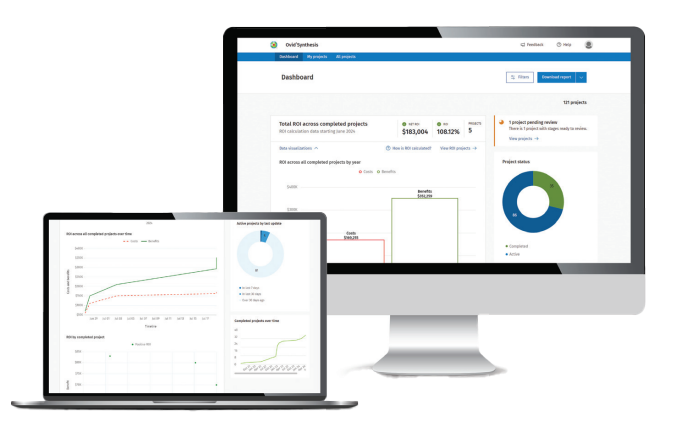
What You Should Know:
– Wolters Kluwer Health today announced the launch of new AI features in Ovid®Synthesis to further support nursing and quality improvement leaders, practitioners and researchers in elevating the quality, speed, and impact of their improvement work.
– Created with feedback from customers and industry experts and now available as an optional add-on to the Ovid Synthesis platform, Ovid Synthesis Expert AI helps organizations accelerate evidence-based practice (EBP), quality improvement (QI), and research projects by streamlining manual and rigorous project tasks.
Wolters Kluwer Launches Ovid Synthesis Expert AI to Accelerate Evidence-Based Practice and Clinical Improvement
“Healthcare systems are under immense pressure to deliver measurable improvements with fewer resources, and that requires smarter, faster ways of working,” said Rafael Sidi, Senior Vice President and General Manager of Health Research at Wolters Kluwer Health. “Ovid Synthesis Expert AI is designed to eliminate the friction points that slow down improvement initiatives—such as manual literature reviews, inconsistent mentorship, and fragmented workflows. By embedding Expert AI directly into the process, we’re enabling teams to accelerate progress, scale their impact, and maintain the highest standards of clinical and academic excellence.”
Ovid Synthesis Expert AI helps healthcare professionals reclaim more time for patient care by addressing three key challenges that typically delay quality improvement and evidence-based practice projects: the lengthy critical appraisal process, lagging mentor feedback, and the manual effort required for research dissemination. The platform supports clinicians and educators in scaling their impact—regardless of experience or location—through the following features:
1. Critical Appraisal: AI-generated summaries with linked sources allow teams to assess literature more efficiently while ensuring rigor through easily accessible source verification.
2. Clinical Question Feedback: AI offers real-time guidance and refinement for PICO(T) questions, keeping projects focused, well defined, and reducing reliance on overburdened mentors.
3. Dissemination: AI automatically converts project results into multiple publication-ready formats, such as conference abstracts, manuscript drafts, and newsletter content, enabling rapid knowledge sharing.
Built to enhance clinician satisfaction and improve patient outcomes, the Ovid Synthesis platform streamlines workflows, facilitates collaboration, and provides easier access to reliable evidence. Healthcare organizations use the platform to demonstrate return on investment (ROI) from quality improvement initiatives and justify continued investment in evidence-based practice.
The development of Ovid Synthesis Expert AI was guided by feedback from medical librarians and clinicians who identified the most persistent challenges in implementing EBP, QI, and research projects. Wolters Kluwer applied its deep domain expertise and decade-long experience in artificial intelligence to build a purpose-driven solution that enhances workforce efficiency while maintaining academic rigor. By minimizing variability in research proficiency and lowering barriers to scholarly dissemination, Ovid Synthesis Expert AI supports both project-level execution and broader institutional goals for continuous learning, innovation, and improvement.
Ovid Synthesis Expert AI is powered by Wolters Kluwer Expert AI, a trusted technology framework designed to help healthcare professionals work faster and make informed decisions based on verified, evidence-based content.
